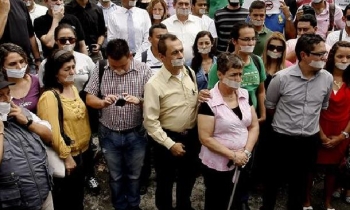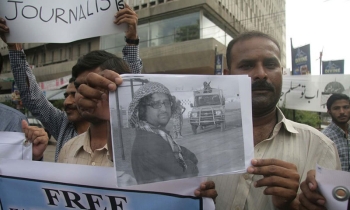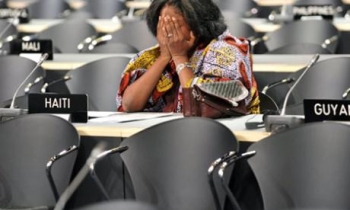A new report to Canada's Human Right Commission says the law should be changed so the federal agency no longer investigates complaints relating to hate speech. Richard Moon, a professor at the University of Windsor, Ontario, who authored the report, says the section of the Canadian Human Rights Act that prohibits communication that exposes people to hate should be repealed.
The commission launched the study after taking criticism for investigating cases seen as threatening the freedom of the press, according to Reuters. In one such complaint, from the Canadian Islamic Congress, Maclean's magazine was accused of subjecting Muslims to hate speech for publishing an article by journalist Mark Steyn that said Muslims were set to swamp the West. The commission dismissed that complaint, but Maclean's said it had been forced to spend large amounts in legal fees to defend itself, which it could not get back.
"My principle recommendation, in the end, has been for the repeal of Section 13," Moon told CBC News on Monday. "That does not mean that we no longer have hate speech regulation. What it means is that the Criminal Code of Canada, which has a ban on the wilful promotion of hatred, would be the recourse." [Link]
In his report, which was made public Monday, Moon also suggests that the application of the Criminal Code provision should also be limited. He says it should only be applied in cases where the speech "explicitly or implicitly threatens, justifies or advocates violence against the members of an identifiable group."
Moon argues that this narrower definition would be an awkward fit with human rights law. "Human rights codes understand discrimination very broadly," Moon said. "They understand discrimination when dealing with employment or accommodation."
That is why, for example, Moon said, someone who fails to install a wheelchair ramp may be the subject of a complaint. "It's very much oriented toward education, conciliation [and] trying to bring the parties together in some way and recognize the needs of each other."
In his report, Moon recommends focusing attention on the most extreme forms of hate speech. "Expression that stereotypes or defames the members of an identifiable group is offensive, insulting and harmful," Moon wrote. "Nevertheless, censorship of this expression is not a viable option. Because discriminatory views or assumptions are so widely held and circulate generally in society, they cannot be eradicated through censorship. To try and do so, Moon concluded, would require "extraordinary intervention by the state."
"We must develop ways other than censorship to respond to expression that stereotypes and defames," Moon wrote.
But the more extreme forms of expression, advocating violence, merit a stronger response. "That extreme kind of expression is better dealt with in the context of criminal law rather than an administrative structure that is oriented to a broad and inclusive notion of discrimination," Moon said.









